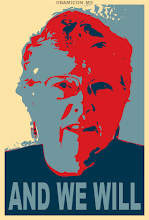Canada's Aboriginals Slam "Third - World" Conditions
TORONTO (Reuters) - Canada cares less and less about the "third-world" living conditions faced by many of its native peoples, protesters said on Thursday in the second annual aboriginal National Day of Action.
"The Canadian government turns around and tells foreigners that are coming to this country that native people in Canada are very well taken care of -- that they have money, that they have houses, that that have jobs," said Gary Wassaykeesic from the Mishkeegogamang Indian reserve in northwestern Ontario.
"But in all reality, when you go into your own backyard, you're going to find third-world conditions."
Natives' frustrations have grown in recent years over the issues of poverty, health care and living conditions on many of the country's reserves. Increasingly, there have been road blockades and standoffs between native protesters and police, and sometimes violence.
But Thursday's National Day of Action was peaceful, police said, unlike 2007, when protesters east of Toronto shut down Canada's busiest highway.
"There's no violence. We're trying to get our message across without breaking windows or smashing cars," Wassaykeesic told Reuters on the sidelines of the march through Toronto, where obvious signs of support from onlookers were scarce.
More than any other group in Canada by far, aboriginals face poverty, crime, and poor health and housing. Unemployment and suicide levels are also highest among natives, especially on the remote reserves that dot the country's north.
Asked why conditions are still so bad for aboriginals, federal Indian Affairs Minister Chuck Strahl told reporters in Ottawa: "There's lots to do, I admit that, and I don't claim that it's all done."
He added: "All these things are expensive, they've got to be done, and we're working through a list of priorities."
A theme at this year's protest was the effect that mining and forestry have had on native land, with damage from the extraction of resources leading to clashes between business, government and aboriginal communities.
"A lot of non-native people don't understand our issues. They think we're just a bunch of radicals or terrorists," said Maria Swain, who is from Ontario's Grassy Narrows reserve, about 200 km (120 miles) east of Winnipeg.
"They don't understand our spirituality and our connection with the earth."
In Ottawa, a crowd of around 1,000 people, led by drummers and dancers in traditional colored dress, held a protest outside the main Parliament buildings to air their grievances.
Phil Fontaine, head of the Association of First Nations, complained that while Ottawa was going to spend billions of dollars on new tanks, planes and ships for the armed forces over the next 20 years, it could not find the money to improve aboriginal schools.
"It's shameful, absolutely shameful," he said.


Links to this post:
Create a Link
<< Home